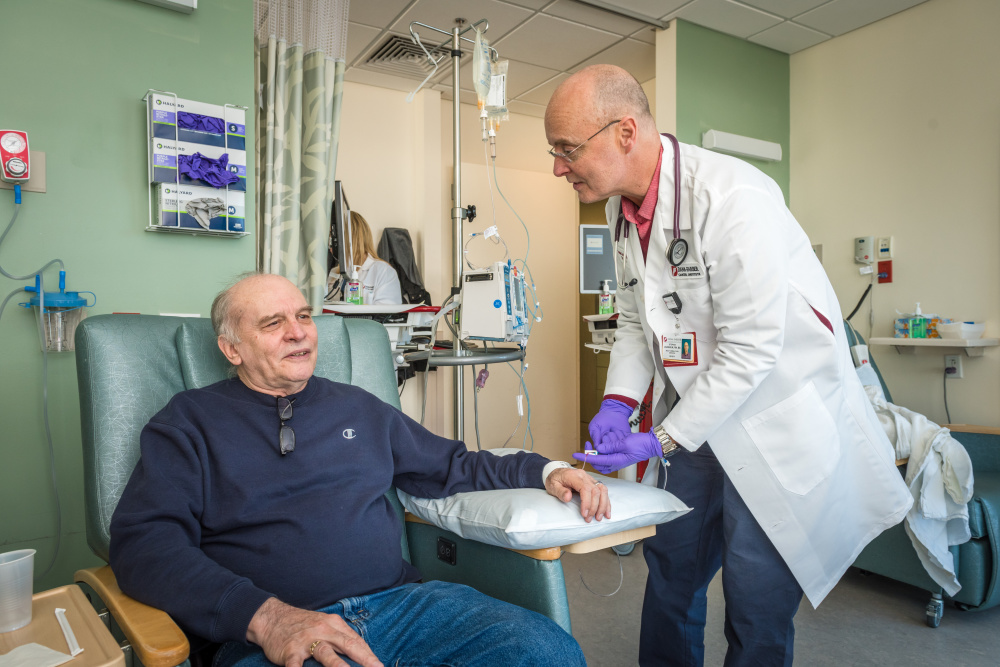
Both chemotherapy and antibody agents are used in the treatment of cancer. In its broadest definition, cancer chemotherapy refers to any drug that destroys cancer cells or slows their growth and reproduction. As the “chemo” in their name suggests, however, true chemotherapy agents consist of chemicals that kill fast-growing cancer cells while generally sparing slower-growing normal cells.
Antibodies, by contrast, are not chemicals but proteins that target specific molecules on the surface of cancer cells. Antibodies are made by B cells, a type of white blood cell that’s part of the body’s immune system. Attracted by molecules that are especially plentiful on the surface of foreign or diseased cells, antibodies latch onto these cells and cause them to die.
Learn More:
The antibodies used in cancer therapy are engineered to specifically target certain types of cancer cells. When such antibodies are copied over and over in a lab, the result is a monoclonal antibody therapy, a treatment consisting of millions of identical antibodies aimed at the same molecules on tumor cells. More than a dozen monoclonal antibodies have been approved by the Food and Drug Administration to fight cancer, particularly breast, head and neck, lung, liver, bladder, and melanoma skin cancers, as well as Hodgkin lymphoma.
Because they are derived from or based on proteins within the immune system, antibody treatments are considered a form of immunotherapy. They are the tip of the spear in immune checkpoint inhibitors – immunotherapy drugs of exceptional promise that lower cancer cells’ defenses against an immune system attack.
Antibody treatments can function in a number of different ways, including by:
- Serving as flags that, by adhering to cancer cells, incite an immune system attack on them;
- Blocking access to proteins that promote cancer cell growth;
- Deterring tumors from attracting blood vessels that feed their growth; or
- Attacking cancer cells directly.
Antibody agents can also be coupled to other forms of cancer therapy. They can be attached to tiny radioactive particles, for example, to carry radiation therapy directly to cancer cells. They can also be joined to chemotherapy agents, creating what are known as conjugate drugs.
Traditional chemotherapy drugs – often referred to as “cytotoxic” agents because they poison cancer cells – work by halting or interfering with cell division. They accomplish this by damaging the DNA or RNA that controls the division process. Faster-dividing cells, such as cancer cells, are more susceptible to this kind of disruption than slower-dividing, normal cells are. Chemotherapy agents also can work by triggering cancer cell apoptosis, a self-destruct mechanism carried by all cells.
Both chemotherapy and antibody therapy can produce side effects. With chemotherapy, it is often because the drugs produce collateral damage to fast-growing cells, such as those in the gastrointestinal tract, scalp, and mouth, that aren’t cancerous. With monoclonal antibodies, problems arise when the antibodies, or the immune system response they trigger, affect normal, as well as cancerous cells.
Learn more about immunotherapy treatment at Dana-Farber.
